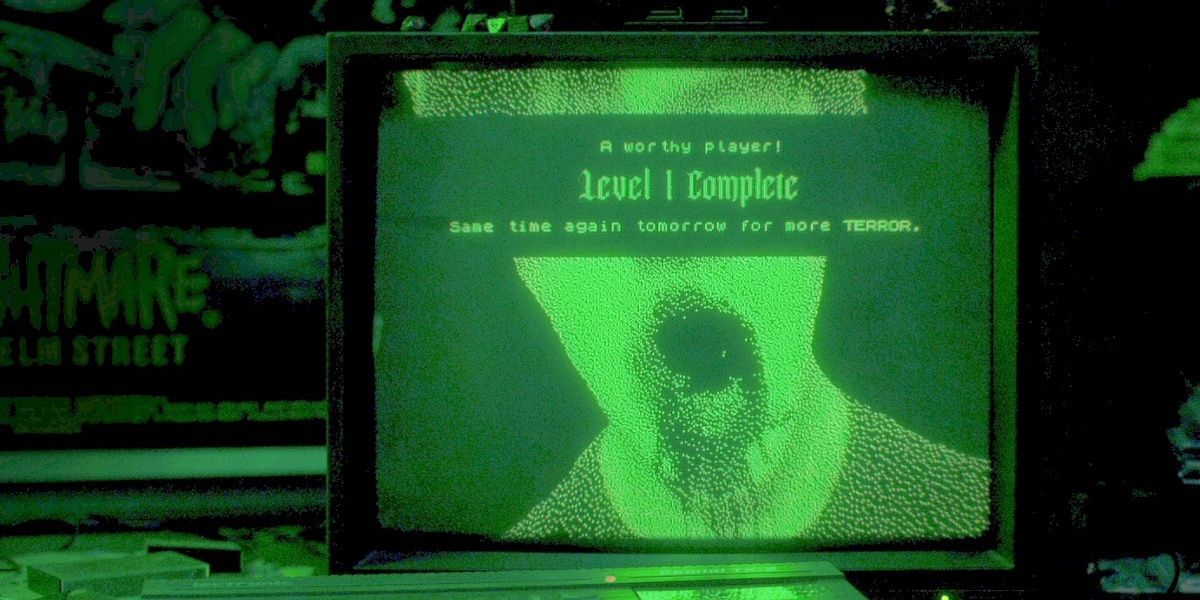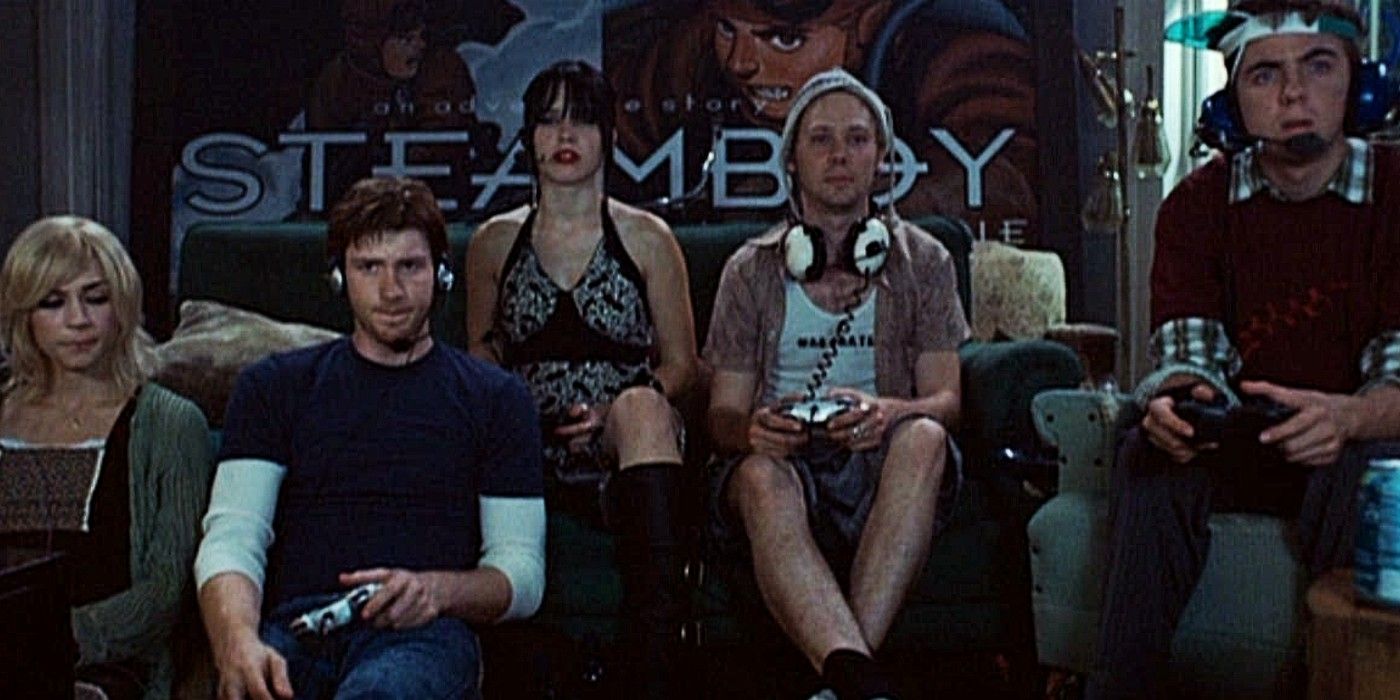
Video games and movies have a somewhat strained relationship. Movies based on video games are just emerging from the deep black hole they dug themselves into, but movies about fictional video games have a different story. When horror movies use games, they usually do so with the most dangerous video game trope.
There’s something hilarious about the games kids play in movies and TV shows. Viewers often watch characters play games that seem to watch characters play games that look terrible or absurd. Sometimes, however, games invented by writers and VFX teams for other mediums can be more scary than funny.
The “most dangerous video game” trope imagines a video game that has a nightmarish effect on its players. It is usually cursed, haunted, or developed and released by a sadistic monster. The game could be just about anything, although it generally falls into the survival horror genre. Players find themselves tied to their in-game avatar. Their safety is often tied to their in-game performance. Other haunted video games could induce madness in their players, with the nightmarish experience of completing its challenges evoking a Lovecraftian terror. . A few of these games don’t even kill or bribe their players, they just bewitch them with sorcery to keep them playing forever. The trope combines outdated comic alarmism about the negative societal and personal effects of gambling with supernatural horror, sometimes with the graceless paranoia of an after-school special.
Though far from the prime example, the seminal “Most Dangerous Video Game” film is William Brent Bell’s 2006 classic Stay alive. The film was produced by Hi Terminator director McG and distributed by Buena Vista, making it Disney’s only full-fledged horror film to date. Stay alive follows a handful of friends who are shaken by an unexplained and sudden death. When they find the eponymous PC game in the personal belongings of the deceased, they make the inexplicable choice to play it. The game leads them through a prayer comparable to Latin at the start of evil Dead. Players begin to end up dead in ways eerily identical to their in-game fates, leading to the immortal line “If you die in the game, you die for real”. It’s a hilarious film, well worth a watch as an object of mockery. It is also the perfect codifier of the trope.
Tons of TV shows have a single episode where the monster of the week is a deadly video game. It’s an oddly common banter that shows of all genres can enjoy, but it doesn’t always carry the same risk. star trek did it at least twice. Deep Space Nine features an episode called “Move Along Home”, which plays around with the idea by introducing a race of aliens obsessed with a VR game. At the end of the episode, Quark fails, but everyone immediately realizes that the game is just a game. There is also a The next generation episode in which a woman uses a VR game that addicts her players to steal the Enterprise, and it spreads through peer pressure. X-Files has a hilarious episode called “First-Person Shooter” in which a VR game becomes haunted and starts murdering real people. spectral superhero Danny Ghost unleashed a ghost in an MMO in “Teacher of the Year” that could have threatened to kill players in real life. It’s an easy and common story for an episodic narrative.
There are fun variations of this trope that have appeared in movies. The 1994 movie Brain scan features a game that uses hypnosis to create immersion, only to reveal that it also leads players to practice violence in the real world. Neveldine and Taylor’s 2009 film player allows players to control real people in first person shooter games and second life clones, but that’s not a twist, that’s the unique selling point. The universally panoramic third spy on kids the film borrows this trope by threatening to trap players in a VR world forever. More recently, Netflix released choose or die, in which an ’80s text adventure game twists reality and forces players to risk the lives of their loved ones. Many anime series start from this concept or borrow it for a brief weekly threat.
The funniest thing about this trope is the fact that the overwhelming majority of the examples seem to know nothing about video games. Many of these killer video games come from a place of comedic alarmism about the violence, addiction, or societal degradation that some say video games will cause. Most movies using this trope are cash in on the hopes of catching gamers’ attention. They generally lack any real critical video game focus. There are a ton of interesting elements from the video game world that could make ripe fodder for horror cinema. Hopefully, this worn and often silly trope could be used to explore some more interesting aspects of the concept.



Commentaires
Enregistrer un commentaire